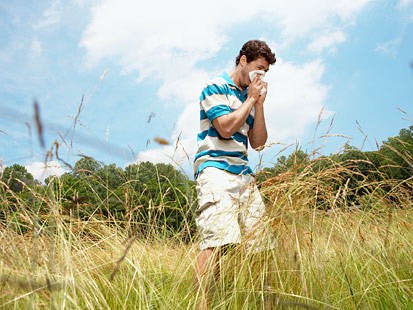” Spring is nature’s way of saying “Let’s party! ” said the funny man Robin Williams.
And he is right; the rising temperature provides the much needed respite from the cold weather, the blooming flowers, the chirping birds, the open windows, and the walk in the park… all in all, a time to be out and bask under the sun and enjoy nature.
Just like in a party, where some enjoy it carefree, others are wary about the hangover; the same holds true for spring. While some make elaborate plans for spring others rush to a pharmacy to buy anti allergy medications. The season of spring ushers in seasonal allergies for many.
The Cause of Spring Allergy
The main cause is the excess pollen in the air. During spring there is a surplus of these tiny particles in the air that causes the immune system of the hypersensitive person into an overdrive. These pollens are released by grasses and weeds (Bermuda, Saltgrass, Timothy, and Orchard etc) and trees (Willow, Juniper, Olive, palm, Elm, Mulberry etc).
When these pollens are inhaled, the body’s immune system confuses them with foreign invaders and secretes antibodies. These antibodies then counter the allergen (pollen) by releasing histamines in the blood. It is this histamine that leads to allergies like a runny nose, skin rashes and itchiness, red and itchy eyes etc.
The quantity of the pollen in the air is directly proportional to the extent of the allergy. As per the AAFA Spring Allergy Capital, Jackson (Miss.), McAllen (TX), and Knoxville (Tenn.), are some of the high risk areas that have high pollen content in the air making allergic people susceptible to the allergies.
The Diagnosis of Spring Allergy
In case you witness any of the above mentioned signs of allergy as spring progresses, then consult your physician. He or she may conduct a skin test or a radioallergosorbent test which is kind of a blood test.
The Prevention and Treatment of Spring Allergy
Spring allergies can be treated by either herbal remedies or by over the counter medicines. Both are discussed here:
- First and foremost spring allergy can be best avoided by staying away from the allergens. Avoid exposure from pollens by keeping your house clean from any moulds. Although tempting, keep the windows closed.
- Buy new bed sheets, clean and change the old ones regularly; this takes care of the dust mites. Do not let your pets sleep on your bed.
- Wash your clothes regularly as well.
- If your child is allergic, wash their stuffed toys / animals and if possible keep them wrapped in a plastic cover.
- Antihistamine genre of oral medicines fights against the histamine in the body thus reducing the signs of the allergy like itchiness, sneezing etc.
- Clear your nasal path with decongestants. A combination of decongestants and antihistamines are advised by the doctors. Decongestants are also available in the form of nasal sprays
- To relieve red eyes and eye itchiness eye drops can be made use of.
(All of the above mentioned drugs are available over the counter but it is advisable to talk to a doctor regarding the right treatment.)
Natural Treatments for Spring Allergy
- Black tea, apples and onions have a flavonoid called quercetin whose anti-inflammatory properties inhibit the histamines.
- One way to open your nasal passage and to eliminate the mucous is nasal irrigation. Nasal irrigation is a solution of ¼ tp. of salt and baking soda mixed in tepid water administered through the nose with a squeeze bottle or a special device called neti-pot.
- Butterbur from a European shrub has potential allergy alleviating properties.
Although the above mentioned methods are natural, it is best if you consult with a doctor before picking any of these options.


 Cart : 0 items - $0.00
Cart : 0 items - $0.00











